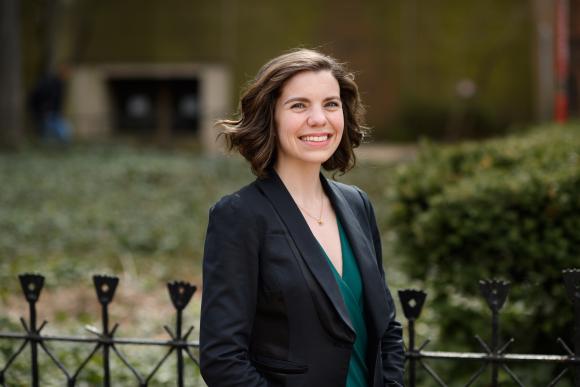
"Broad change is required in the name of justice. In the meantime, I’m glad to see that Rutgers is playing a small role in enabling students to pursue their passions."
“What I can’t pay you in rent, I can pay you in experience as a really good tenant!”
Can you imagine how my landlord would have reacted if I had posed this scenario to him at our first meeting? Hint: not well. Why, then, do legal employers pitch this same scenario to prospective legal interns, and it’s somehow okay?
I hypothesize that in the case of the courts, unpaid internships are a gatekeeping mechanism. The support systems that allow students to participate in such prestigious positions as judicial internships are not as readily available to marginalized communities. According to the Economic Policy Institute, the median household wealth for white families is twelve times higher than it is for Black families, which means Black law students are less likely to have parents who can afford to pay for their expenses while they spend a summer working for free. Similarly, LGBTQ students are more likely to have severed family ties (to demonstrate, homelessness is the strongest predictor of involvement in the juvenile “justice” system, and 40% of homeless youth identify as LGBTQ). Thus, unpaid internships are a way to filter people out of this particular skilled field.
In the case of non-profit organizations, budgetary constraints may make paying interns prohibitively expensive. I’m not suggesting that in the case of public interest firms, the intention is to gatekeep--but it is an unfortunate and direct result. It is no wonder to me that so many students choose to apply to big law firms who can afford to pay them, rather than pursue what truly inspires them, and consequently be at risk for not being able to pay their bills.
Fortunately for me, Rutgers summer funding allowed me to pursue a summer internship that I was truly passionate about. In the late fall of my 1L year, our Director of Public Interest began spreading the word about the summer funding opportunities available to us, and how to apply. Collectively, the Maida Public Interest Fellowship Program, Association for Public Interest (Camden), Public Interest Law Foundation (Newark), and the Chen, Neisser, Weinstein stipends supported approximately seventy students from both Rutgers law locations during the summer of 2020. All of us would have been unpaid without the generosity of donors.
Students pursuing the Maida Public Interest Fellowship Program utilize The Partners Program, which matches students to a premier public interest employer and a Maida stipend simultaneously. This process is “early decision” style, and the student commits to accepting the offer. The matching starts in winter. In 2020, each stipend was valued at $4,000.
The General Program, which encompasses all of the other Rutgers funding sources stipends previously mentioned, is available to students who secure unpaid public interest positions on their own. The application opens in spring. In 2020, the value of the stipends varied, and ranged up to $5,000. Both the Maida and General Programs are competitive.
So much of law is rigged to keep marginalized communities from participating in it: just think about the LSAT and the bar exam. Unpaid internships are no exception. Broad change is required in the name of justice. In the meantime, I’m glad to see that Rutgers is playing a small role in enabling students to pursue their passions.
